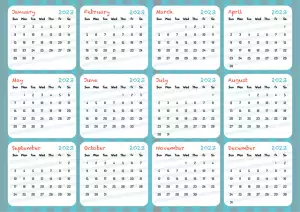TL;DR: Event planners for local businesses must segment audiences by demographics and interests to create engaging events. Strategically tailoring content, themes, and activities (like trends, local talent, or workshops) boosts participation and community connections. For social media events, analyzing user data allows targeting specific groups, enhancing engagement. Aligned with community passions, themed nights and interactive sessions foster a sense of belonging and brand loyalty, making event planning a potent tool for both community engagement and business growth in the digital age.
“Unleash the power of social media events with expert management strategies tailored for local businesses. In today’s digital landscape, engaging your audience offline starts with understanding their online behavior and preferences. This comprehensive guide explores three key pillars: audience engagement through themed activities, effective promotion on social platforms, and seamless on-ground management. Discover how to create memorable experiences that resonate with local followers, drive attendance, and elevate your brand in the competitive market of event planning for local businesses.”
- Understanding Your Audience: Tailoring Events for Maximum Engagement
- – Identifying target demographics and interests of local followers
- – Creating event themes and activities that resonate with the audience
Understanding Your Audience: Tailoring Events for Maximum Engagement

In event planning for local businesses, understanding your audience is paramount. Knowing your target demographic allows for the creation of tailored events that resonate deeply with attendees. This involves delving into factors like age groups, interests, and behaviors to craft experiences that are not just engaging but also meaningful. For instance, a social media event aimed at young professionals would differ significantly from one targeted at retirees or families.
By segmenting your audience, you can tailor content, themes, and activities accordingly. This may include incorporating popular trends, showcasing local talent, or offering interactive workshops that address specific needs and interests. Such personalization enhances engagement, encourages participation, and ultimately fosters a stronger connection between the business and its community—key aspects of successful event planning for local businesses in the digital age.
– Identifying target demographics and interests of local followers

When planning social media events for local businesses, understanding your target audience is paramount. Event planners should begin by identifying the demographics and interests of their local followers. This involves delving into the data provided by social media platforms to segment users based on age, gender, location, and online behavior. By pinpointing these details, organizers can tailor content and activities that resonate with specific groups, ensuring higher engagement levels.
For instance, a local coffee shop might find that its primary audience comprises young professionals aged 25-35 who are avid social media users. In this case, hosting an event themed “Networking Over Coffee” could attract them effectively. Conversely, targeting older residents through a community gathering focused on local history would be more suitable, given their distinct interests and online habits. This strategic approach, centered around Event Planning for Local Businesses, maximizes the impact of social media events, fostering stronger connections between brands and their local communities.
– Creating event themes and activities that resonate with the audience

When planning social media events, one of the key aspects is crafting themes and activities that truly resonate with the target audience. For local businesses looking to engage their customers through event planning, understanding the demographics and interests of their community is essential. This might involve creating themed nights, workshops, or interactive sessions that align with the passions of the local folk. For instance, a café could organize a ‘Coffee Culture’ event, showcasing different brewing techniques and hosting discussions on coffee’s global impact, thereby appealing to both regular patrons and curious new visitors.
By incorporating audience interests into event themes, businesses can foster a sense of community and increase participation. Engaging activities could range from live music performances catering to local tastes to hands-on workshops that encourage skill-sharing among neighbors. These events not only attract attendees but also leave a lasting impression, fostering brand loyalty among the local business’s customer base in the context of event planning for local businesses.
Social media events, when expertly planned and executed, can significantly boost engagement for local businesses. By understanding your target audience—their demographics and interests—and crafting event themes that resonate, you can create memorable experiences. This strategic approach ensures that your events not only attract but also retain local followers, fostering a strong connection between the business and its community. For Event Planning for Local Businesses, these strategies are key to creating a vibrant and lasting online presence.
